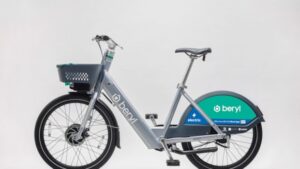A trade body representing haulage and logistics firms has criticised a pilot programme launched by two east London local authorities which sees some streets closed to all but low emission vehicles.
The pilot project, dubbed City Fringe Ultra Low Emission Streets is being led by Hackney and Islington councils.

The councils hope the initiative will encourage walking, cycling and zero emission transport
From Monday (3 September), two time-restricted pedestrian and cycle zones have been introduced, permitting access only to ultra-low emission vehicles (ULEV) and permit holders during peak times.
A first of its kind anywhere in the country, the measure means that access to the area, which covers nine streets, will be limited to walking, cycling and low emission vehicles — those emitting less than 75/km of CO2 — only.
Restrictions cover Rivington Street, Charlotte Road, Cowper Street, Singer Street, Tabernacle Street, Paul Street, Ravey Street, Willow Street and Blackall Street.
Penalties
Residents and businesses with existing parking permits in these areas are exempt from the restrictions but delivery vehicles, taxis and through traffic will face a Penalty Charge Notice if they enter the streets during peak hours. The penalty for non-compliance is £65 if paid within two weeks and £130 within four weeks, the council has warned.
According to the local authorities, the measure will ‘reclaim the streets from polluting petrol and diesel vehicles’.
Councillor Feryal Demirci, deputy mayor of Hackney, said: “Failing to act on poor air quality, which causes nearly 10,000 premature deaths across London every year, is not an option, and that’s why we’re being bolder than ever in our efforts to tackle it.
“We’re thrilled to be launching our Ultra Low Emissions Streets – the first of their kind in the UK – which will reclaim the streets from polluting petrol and diesel vehicles, and improve the area for thousands of people every day.”
The measure has attracted a huge amount of interest, with indications that City of London council is ready to follow suit with a similar pilot scheme in 2019.
However, the pilot has raised eyebrows within the business community, with the Road Haulage Association (RHA) among the organisations to speak out against the project.
Standards
In particular the organisation has expressed concern that the councils have used a standard for vehicles which it is tougher than other proposals currently on the table.
This includes the London ULEZ (Ultra Low Emission Zone) and some proposed Clean Air Zones, many of which use the Euro 6 emission standard for diesels and Euro 4 for petrol as a minimum requirement for charging or access.
RHA chief executive, Richard Burnett, went further in his criticism, describing the plans as ‘indicative of an anti-trade mindset’ among local authorities.
He said: “It’s the thin end of the wedge for motorists and businesses if local authorities make up their own emissions standards and impose punitive charges to enforce them.
“This is indicative of a worrying anti-vehicle, anti-trade mindset in local government that fails to understand the need for businesses to be able to move goods when customers need them.”















